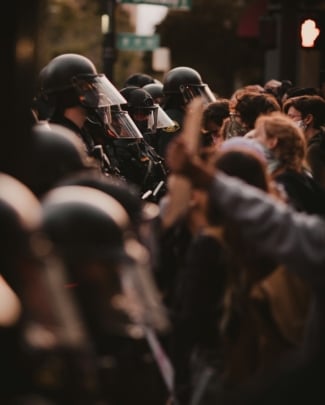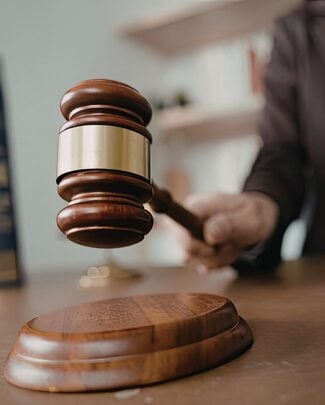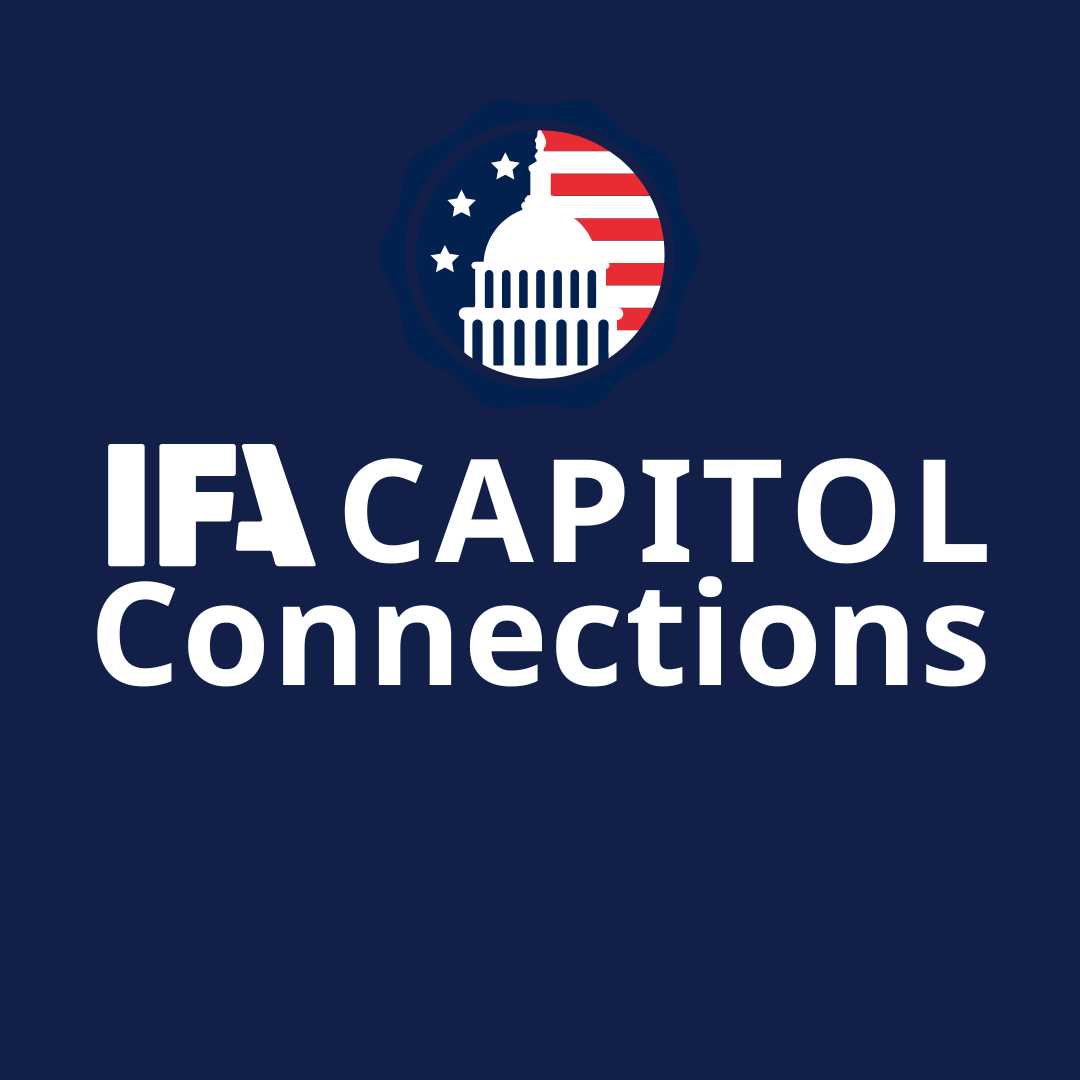THE 8 STATES WITH VOTING LAWSUITS
THE 8 STATES WITH VOTING LAWSUITS
With Election Day just days away, and early voting already underway in many states, the election-related lawsuits have been piling up, and court decisions (and appeals) have been coming out at a dizzying rate.
Some are still trying to change the rules in the middle of the election that would make it easier to commit fraud and to manipulate election results—not unlike a college football coach persuading the referees to change the rules in the middle of a bowl game to make sure his team can win.
Challenges to election procedures in South Carolina (witness requirements for absentee ballots); Ohio and Texas (ballot drop-box locations); and Florida (registration deadline)—to name just a few—have all made the news as they make their way through the federal courts. . . .
Absentee-ballot deadlines have been a major contention—especially when federal judges extend them well beyond Election Day. That raises many serious issues about the integrity of the election process and the possibility of ballots being voted and collected (or altered) by so-called “vote harvesters” after Election Day to shift reported preliminary results.
Here are eight such cases:
1) Wisconsin
We previously wrote about the U.S. 7th Circuit Court of Appeals’ decision to stay (or stop from going into effect) the order of a federal district court judge appointed by then-President Barack Obama that “extended the deadline for the receipt of mailed ballots from Nov. 3 (Election Day) to Nov. 9, provided that the ballots [had been] postmarked on or before Nov. 3 … .”. . .
2) Indiana
Unfortunately, the 7th Circuit’s election-related work didn’t end with Wisconsin’s case. The same court had to repeat itself only five days later when it stayed and “summarily reversed” an Indiana-based federal judge’s order “requiring the state [of Indiana] to count all absentee ballots received by November 13, 2020, ten days after Election Day.” . . .
3) North Carolina
Shifting gears, some plaintiffs have pursued their election-related claims in state courts and then entered into settlement agreements or consent decrees with state officials who refuse to defend their state laws as they are obligated to do.
That’s known as collusive litigation, in which state election officials use lawsuits filed by their friends and political allies to subvert laws implemented by state legislatures that they don’t like or that were passed by their political opposition. . . .
That’s what happened in North Carolina, where the U.S. 4th Circuit Court of Appeals refused to stay a six-day extension—from three days after the election to nine—during which mail-in ballots could be received and counted by election officials so long as the ballots were mailed on or before Election Day.
This extension was the result of a state court consent decree entered into between the state court plaintiffs and the North Carolina Board of Elections, which is controlled by Democrats, while both houses of the North Carolina General Assembly are controlled by Republicans.
A lower court judge found that the board had “secretly” negotiated the settlement without consulting the legislature and “showed little or no interest” in defending state law against the lawsuit.
Judge James A. Wynn, another Obama appointee, wrote the opinion for the entire 4th Circuit, over the vigorous dissent of Judges J. Harvie Wilkinson III and G. Steven Agee, with whom Judge Paul Niemeyer joined. . . .
The dissenters countered that “we are faced with nonrepresentative entities changing election law immediately preceding or during a federal election. In making those changes, they have undone the work of the elected state legislatures, to which the Constitution clearly and explicitly delegates the power” to prescribe the times, places, and manner of holding elections. . . .
Foreshadowing Gorsuch’s concurrence in the Wisconsin case, they went on to say, “Whether it is a federal court … or a state election board—as it is here—does not matter; both are unaccountable entities stripping power from the legislatures. They are changing the rules of the game in the middle of an election—exactly what Purcell … counsels against.”
In fact, Niemeyer noted, the 4th Circuit majority was changing the rules when “well over 1,000,000” North Carolinians had already voted.
The court’s action “disrespects the Supreme Court’s repeated and clear command not to interfere so late in the day. This pernicious pattern is making the courts appear partisan, destabilizing federal elections, and undermining the power of the people to choose representatives to set election rules.”
With Election Day just days away, and early voting already underway in many states, the election-related lawsuits have been piling up, and court decisions (and appeals) have been coming out at a dizzying rate.
Some are still trying to change the rules in the middle of the election that would make it easier to commit fraud and to manipulate election results—not unlike a college football coach persuading the referees to change the rules in the middle of a bowl game to make sure his team can win.
Challenges to election procedures in South Carolina (witness requirements for absentee ballots); Ohio and Texas (ballot drop-box locations); and Florida (registration deadline)—to name just a few—have all made the news as they make their way through the federal courts.
But wait, there’s more!
The left is actively working to undermine the integrity of our elections. Read the plan to stop them now. Learn more now >>
Absentee-ballot deadlines have been a major contention—especially when federal judges extend them well beyond Election Day. That raises many serious issues about the integrity of the election process and the possibility of ballots being voted and collected (or altered) by so-called “vote harvesters” after Election Day to shift reported preliminary results.
Here are eight such cases:
1) Wisconsin
We previously wrote about the U.S. 7th Circuit Court of Appeals’ decision to stay (or stop from going into effect) the order of a federal district court judge appointed by then-President Barack Obama that “extended the deadline for the receipt of mailed ballots from Nov. 3 (Election Day) to Nov. 9, provided that the ballots [had been] postmarked on or before Nov. 3 … .”
In doing so, the court of appeals chastised the district court judge, reminding him that “the Supreme Court has insisted that federal courts not change electoral rules close to an election date” and that “the design of adjustments during a pandemic” is not a “judicial task.”
On Oct. 26, the U.S. Supreme Court agreed, rejecting the Democratic National Committee’s request for a stay of the 7th Circuit’s order. Chief Justice John Roberts wrote a concurrence explaining his rationale for why this decision differed from the high court’s decision in the Pennsylvania case (more on that in a moment), and Justice Neil Gorsuch also wrote a concurrence emphasizing that “[t]he Constitution provides that state legislatures—not federal judges, not state judges, not state governors, not other state officials—bear primary responsibility for setting election rules … [a]nd the Constitution provides a second layer of protection, too. If state rules need revision, Congress is free to alter them.”
2) Indiana
Unfortunately, the 7th Circuit’s election-related work didn’t end with Wisconsin’s case. The same court had to repeat itself only five days later when it stayed and “summarily reversed” an Indiana-based federal judge’s order “requiring the state [of Indiana] to count all absentee ballots received by November 13, 2020, ten days after Election Day.”
The court relied on the same rationale as in its previous cases and in some instances even said “[s]ubstitute ‘Indiana’ for ‘Wisconsin’ and the essential point remains.”
An important point to keep in mind that too many seem to forget or want to ignore is that, as the 7th Circuit said, “as long as the state allows voting in person, there is no constitutional right to vote by mail.”
The fact that there is a pandemic is still “not a good reason for the federal judiciary to assume tasks that belong to politically responsible officials.”
In other words, it is up to state officials, not judges, to decide what the rules are applying to voting and the receipt of absentee ballots.
3) North Carolina
Shifting gears, some plaintiffs have pursued their election-related claims in state courts and then entered into settlement agreements or consent decrees with state officials who refuse to defend their state laws as they are obligated to do.
That’s known as collusive litigation, in which state election officials use lawsuits filed by their friends and political allies to subvert laws implemented by state legislatures that they don’t like or that were passed by their political opposition.
Even more problematic, these consent decrees in turn often spawn their own rounds of federal litigation by state legislators and others who object to state laws being undefended and summarily changed through settlement agreements.
That’s what happened in North Carolina, where the U.S. 4th Circuit Court of Appeals refused to stay a six-day extension—from three days after the election to nine—during which mail-in ballots could be received and counted by election officials so long as the ballots were mailed on or before Election Day.
This extension was the result of a state court consent decree entered into between the state court plaintiffs and the North Carolina Board of Elections, which is controlled by Democrats, while both houses of the North Carolina General Assembly are controlled by Republicans.
A lower court judge found that the board had “secretly” negotiated the settlement without consulting the legislature and “showed little or no interest” in defending state law against the lawsuit.
Judge James A. Wynn, another Obama appointee, wrote the opinion for the entire 4th Circuit, over the vigorous dissent of Judges J. Harvie Wilkinson III and G. Steven Agee, with whom Judge Paul Niemeyer joined.
The central dispute between the majority and the dissent centered on what constituted the “status quo” when applying the Purcell principle, established by the Supreme Court in 2006. That’s the idea that federal courts generally should not interfere with a state’s election-related decisions close to an election.
Wynn and the majority said, “The state court issued an order approving the Consent Judgment on October 2. This October 2 order established the relevant status quo for Purcell purposes. Under this status quo, all absentee votes cast by Election Day and received by November 12 would be counted.”
The dissenters countered that “we are faced with nonrepresentative entities changing election law immediately preceding or during a federal election. In making those changes, they have undone the work of the elected state legislatures, to which the Constitution clearly and explicitly delegates the power” to prescribe the times, places, and manner of holding elections.
As the dissenters pointed out, “The Constitution does not assign these powers holistically to the state governments, but rather pinpoints a particular branch of state government—‘the Legislatures thereof.’”
Foreshadowing Gorsuch’s concurrence in the Wisconsin case, they went on to say, “Whether it is a federal court … or a state election board—as it is here—does not matter; both are unaccountable entities stripping power from the legislatures. They are changing the rules of the game in the middle of an election—exactly what Purcell … counsels against.”
In fact, Niemeyer noted, the 4th Circuit majority was changing the rules when “well over 1,000,000” North Carolinians had already voted.
The court’s action “disrespects the Supreme Court’s repeated and clear command not to interfere so late in the day. This pernicious pattern is making the courts appear partisan, destabilizing federal elections, and undermining the power of the people to choose representatives to set election rules.”
Emergency appeals have already been filed with the Supreme Court by both the Trump campaign and North Carolina state legislators, no doubt encouraged by Wilkinson and Agee saying that they “are likely to succeed on their appeal.”
4) Minnesota
A federal district court in Minnesota recently confronted a similar issue with another collusive lawsuit. There—as in North Carolina—Steve Simon, the Minnesota secretary of state, a former Democratic state legislator, entered into a consent decree with certain groups, as a result of a state court lawsuit, agreeing “not to enforce Minnesota’s statutorily mandated absentee-ballot receipt deadline of 8:00 p.m. on Election Day, November 3, 2020.”
“Instead, the [state] court ordered [Minnesota officials, consistent with the consent decree] to count ballots that are postmarked by November 3, so long as election officials receive them within a week of Election Day.” . . .
5) Michigan
The Michigan Court of Appeals, that state’s intermediate appellate court, ruled on Oct. 16 that a lower Michigan court had incorrectly required the state to accept mail-in ballots up to 14 days after Election Day and that it had improperly prohibited the state from enforcing its laws relating to who, other than the voter, can handle and deliver his or her ballot.
It made clear that “designing adjustments to our election integrity laws is the responsibility of our elected policymakers, not the judiciary.”
In fact, the court said:
Our legislature has addressed the expected increase in [absentee] voter ballots by empowering clerks to begin processing [absentee] voter ballots earlier in an effort to provide a final vote tally after polls close for the 2020 election … .
While plaintiffs may view these efforts as inadequate first steps, there is no reason to believe that these specific efforts are constitutionally required, even in the midst of a pandemic.
Instead, they reflect the proper ‘exercise of discretion, the marshaling and allocation of resources, and the confrontation of thorny policy issues’ that the people have reserved exclusively for our Legislative and Executive branches to exercise. . . .
6) Pennsylvania
On Oct. 19, an evenly divided Supreme Court deadlocked 4-4 and thus left in place a ruling by Pennsylvania’s Supreme Court in a lawsuit brought by the Pennsylvania Democratic Party that would require—according to that court’s interpretation of state law—state officials to count absentee ballots received up to three days after the election even if they don’t have a postmark showing they had been mailed by Election Day.
7) Iowa
On Oct. 14, the Iowa Supreme Court held that a lower state court abused its discretion when it issued an Oct. 5 stay preventing the Iowa secretary of state from requiring that county officials distribute “only the blank Official State of Iowa Absentee Ballot Request Form … .”
While the decision turns largely on state law, the court said, “Clearly, reasonable people can disagree on whether sending out blank or prepopulated absentee-ballot request forms is better policy … [but m]ore importantly, it is not the role of the court system to evaluate the wisdom or fairness of policy choices made by other branches of governments.” . . .
8) Alabama
And finally, we turn to Alabama. We previously discussed the 11th Circuit’s rulings that have repeatedly stayed a recalcitrant federal district judge’s order prohibiting Alabama from enforcing its witness and photo-ID requirements for absentee ballots, and the fact that this same decision did not stay the district court’s order telling Alabama state officials they could not stop local officials from providing curbside voting, something not authorized under state law.
(Excerpt from The Daily Wire. Article by Zach Smith. Photo Credit: Getty Images.)
Share your thoughts on these voting lawsuits. . .
Partner with Us
Intercessors for America is the trusted resource for millions of people across the United States committed to praying for our nation. If you have benefited from IFA's resources and community, please consider joining us as a monthly support partner. As a 501(c)3 organization, it's through your support that all this possible.


We use cookies to ensure that we give you the best experience on our website. If you continue to use this site we will assume that you are happy with it. Privacy Policy




Comments
Father God
Please allow a MAGA 2020 Landslide Victory so that all this will not be needed tomorrow but maybe a law that can not be changed for future election that election RESULT must be RECEIVED on the night of the election.
In Jesus name. Amen.
FATHER GOD just as the cry was so great in Egypt when YOUR people Israel were taken and held captive, that YOU sent a deliverer, Moses to set them free and to lead them out of bondage into freedom; we also cry out to YOU FATHER GOD to help us to Not Go Into Bondage with the wicked and evil democrats in JESUS Name! Help us FATHER GOD for we have no might against all of these enemies set against us! Forgive our lack of prayer and obedience that allowed this wickedness to get to this point! FATHER GOD please send deliverance and give us 4 more years of peace with President Donald J. Trump! FATHER GOD we ask for the democrats that stand and support things that YOU call abominations to repent and receive salvation in the Name of JESUS! If they don’t repent FATHER we thank YOU for fighting our enemies for us as YOUR WORD tells us YOU Will in the MIGHTY PRECIOUS NAME of JESUS CHRIST! Amen!
so where is the case for NJ??? I thought there was one for requiring mail ins iso going to the polls. so who fell down on the job??? We need answers!!! This can never happen again. We have been cheated by Gov. Murphy, and the election his biggest misstep.
I pray that any and all efforts to hijack the election in any race be prevented. I pray for love, peace and unity upon all people in the Name of the LORD Jesus Christ!